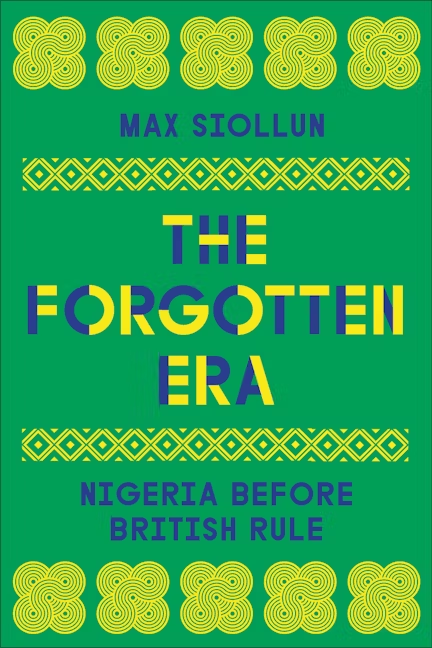
Most accounts of northern Nigeria’s history focus on the Sokoto Caliphate. Since most of what we now know about the jihad was written by its leaders, the victors’ narrative became the official history of northern Nigeria. One of the few exceptions to this singular narrative came from one of its neighbours. In fact, Hausaland modelled some of its institutions and lexicon on this neighbouring empire.
After the jihad spread to Borno, much of Borno’s population fled in panic and became homeless refugees as the Fulani forces under Buba Yero, Ibrahim Zaki, and Gwoni Mukhtar raided Borno. Borno’s ruler Mai Ahmad evacuated Borno’s capital and escaped with his family and the surviving members of his court. The 800-year-old kingdom was on the brink of collapse and being taken over by the Fulani. The elderly and blind Ahmad abdicated to his son Dunama. As Dunama scoured the kingdom to try and muster fighting men for a counter-attack against the Fulani, he heard stories about a young and brilliant scholar who had moved to Borno after being born, raised, and educated in Arab lands. The scholar that Dunama heard about was living in the town of Ngala (close to Nigeria’s modern-day north-eastern border with Cameroon) earning a living as a religious teacher and by selling religious charms. The scholar was famed for his alleged mystical powers and proficiency in making supernatural charms. He had also proved his martial quality by standing up to Fulanis in his neighbourhood and defeating them with a small force of religious students and teachers. Dunama summoned this revered scholar and asked him to come to Borno’s aid against the Fulani.
“his mere presence was commanding”
Unfortunately for Dan Fodio and his followers, they could not easily dismiss their new adversary as a pagan as they had done to the Hausa kings and the people who had fled uphill in fear during the jihad. He was very similar to the Caliphate leaders; erudite, and well versed in Islamic law and theology. His biographer said that he ‘captivated those around him. Not only was he ferocious in battle, brilliant in debate, astute in politics, fervent in religious devotion, and encompassing with his love, but his mere presence was commanding.’ The man Mai Dunama summoned was the son of a Kanembu father and an Arab mother. His name was Mohammed al-Kanemi (literally ‘Mohammed from Kanem’).
Although Borno’s rulers did not realise it at the time, recruiting Kanemi to their cause simultaneously gained the greatest challenge to the Fulani and also unwittingly prepared the path for their own replacement. Kanemi was remarkably similar to Dan Fodio. Both of them were literate in Arabic, and both of their fathers were also renowned Muslim scholars. Kanemi’s scholarly credentials and Islamic knowledge were impeccable, perhaps even more impressive than those of Dan Fodio and his lieutenants. Kanemi spent the first three decades of his life in Libya, Egypt, and Saudi Arabia. He studied under the most revered Islamic scholars of his era, and by the time the jihad commenced in 1804, he was already a charismatic and famous scholar, even though he was not yet 30 years old. His initial response after coming into Mai Dunama’s service demonstrated to the Fulani jihadists that he was not like the others they had encountered and defeated. He confronted the Fulani jihadists not only with weapons, but also with words.
The Pen and Sword
Kanemi sent a chastising letter to the Fulani leaders in Borno, asked them to explain their reasons for waging jihad against Borno. He told them:
“…I found the fire of discord which was blazing between you and the people of the land. I asked the reason, and it was given as an injustice by some and as religion by others. What is the cause of this discord? What do you demand from the people? About what matter did a conflict occur between you and them?”
Kanemi was careful not to attack Dan Fodio personally, given the massive charisma and influence he had with the Fulani. He instead asked them: ‘Let us know whether you have contact with … the Shaikh Usman Dan Fodio. Know that information regarding his praiseworthy state and graceful comportment has reached us.’ When the Borno Fulani eventually replied, Kanemi was not impressed. In fact he could barely conceal his intellectual disdain for them. He later said that that the Borno Fulani:
“…returned me a weak answer, not such as comes from an intelligent man, much less a learned one, let alone from one who is reforming religion. They referred me to certain books and said that in these books they had learnt of the necessity of waging war. Now we have examined these books and we do not see in them what they have seen.”
Kanemi combined his diplomatic correspondence with military efforts on the battlefield. Borno’s forces regrouped and Kanemi’s followers reinforced them. Kanemi’s repute for writing supernatural charms raised morale. Oral traditions in Borno claim that prior to engaging the Fulani on the battlefield, Kanemi isolated himself for several days in meditation and prayer, and that after emerging from his spiritual isolation, wrote several Arabic formulae on a calabash. He then gave the calabash to Borno’s army and instructed them to smash it to the ground just before they made contact with the Fulani forces on the battlefield. They did exactly as Kanemi instructed, defeated the Fulani, and killed their leader Gwoni Mukhtar. Kanemi’s entry changed the direction of the conflict, and helped Borno to recover its capital from the Fulani in less than one year.
After expelling the Fulani from Borno’s capital, Kanemi returned home (like his adversary Dan Fodio did after the jihad), and resumed his scholarly career at Ngala. However, controversy in Borno and further Fulani attacks did not allow him to rest for long. Only one year after Borno regained its capital, the Fulani returned again in 1810 to resume raiding Borno’s territory under their leaders such as Muhammadu Manga (the son of Gwoni Mukhtar who was killed when Borno recaptured its capital) and Ibrahim Zaki. The renewed Fulani attacks forced Mai Dunama to flee and to once again call on Kanemi for help. The momentum of Kanemi’s fame was now irresistible. News of how he helped Borno defeat the Fulani and his mystical powers had spread far and wide.
The War of Words
However, Kanemi remained appalled that the Fulani had declared jihad against people who shared the same faith as them. Being dissatisfied with the Borno Fulani’s response, he wrote to Dan Fodio himself. Kanemi’s letter to the jihad’s spiritual leader was important because it challenged the Fulani justification for the jihad and presented the most significant theological ‘other side of the story’ against the Fulani. Kanemi’s astute and precise theological arguments jolted the Fulani jihadists’ assumption of theological supremacy and made them reflect on whether their actions were justified. Remarkably, this written theological debate went on as the two sides were fighting a war.
‘Tell us therefore why you are fighting us and enslaving our free people’
Kanemi composed an articulate and dignified letter to the jihad leaders in
Sokoto in which he informed them that:
“We believe in writing; even if it makes no impression on you, it is better than silence … Tell us therefore why you are fighting us and enslaving our free people…We disapprove of raids, the granting of permission for homicide, the enslavement of free people, the burning of houses, and other violence…We are astonished that you should permit such things when you claim to be reforming our religion”.
Kanemi’s accusation about the jihadists enslaving Muslims hit a raw nerve and had such a profound effect on the Caliphate leaders that Dan Fodio’s son Mohammed Bello admitted, ‘There was nothing which caused us so much anxiety as a letter from Alhaji Aminu’ (Kanemi). Kanemi’s letter caused so much soul searching among Dan Fodio and his lieutenants that they replied to refute its accusations, and to issue their own rationalisations for the jihad. Had Kanemi’s challenge not elicited replies from the Caliphate leaders, we probably would not know as much about the jihad as we currently do. Bello wrote a bristling reply in which he justified the jihad in Borno by informing Kanemi that:
“The first cause of our fighting against your people is that they are helping the heathen Hausas against us. You must in truth know that whoever helps infidels is no better than they … your Amir [Mai Ahmad] rose up in order to harm your Fulbe neighbors who were emulating; the Shaikh. He forced them to take flight thus siding with the kings of Hausa and helping them. It is known that Unbelievers help only one another, while Believers do likewise.”
Kanemi goaded Bello into a lengthy riposte that served as a historical A–Z guide to the jihad.
—
Excerpt from THE FORGOTTEN ERA: NIGERIA BEFORE BRITISH RULE published by Pluto Press. Copyright © 2025 by Max Siollun.
Buy a copy of the book here!


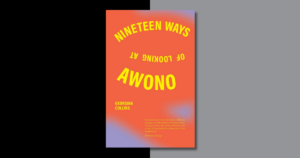

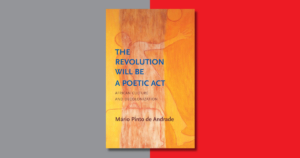
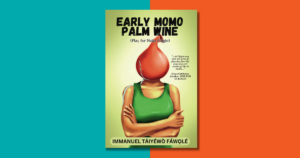
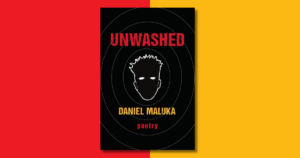
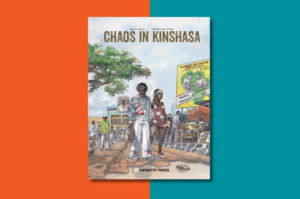

COMMENTS -
Reader Interactions